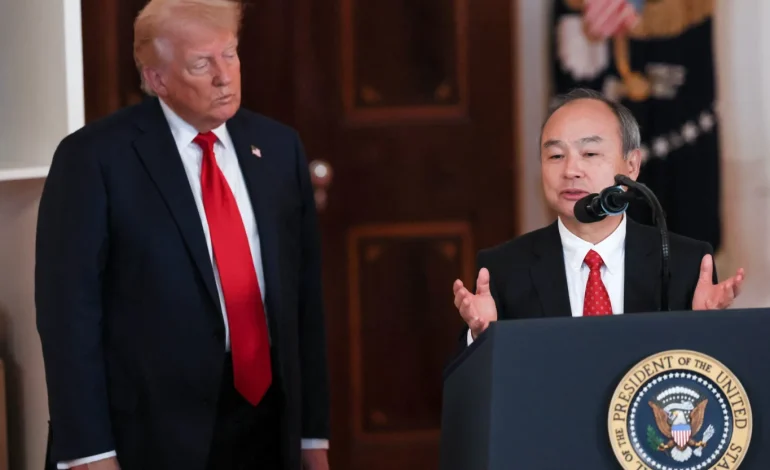SoftBank Group’s Vision Fund segment reported a pretax loss of ¥115.02 billion ($777.7 million) for the fiscal year ended March, marking a reversal from the ¥128.2 billion profit recorded in the previous year.
The decline was driven by slower gains in its tech investments, as market volatility and economic uncertainty continued to weigh on valuations.
The company said the Vision Funds booked investment gains of ¥434.9 billion, down 40% from ¥724.3 billion a year earlier. Although the fund benefited from rising valuations in companies like ByteDance, Didi, and Coupang, losses in other holdings, including AutoStore, dragged on overall performance.
SoftBank’s Vision Funds have long been a focal point for investors seeking insight into the company’s broader tech investment strategy. However, the performance of this segment remains highly sensitive to swings in both public and private market valuations, making it one of the more volatile components of SoftBank’s business.
In the fiscal fourth quarter, the Vision Funds logged a modest gain of ¥26.1 billion, aided by a rebound in some portfolio companies’ valuations, including TikTok’s parent firm ByteDance. This follows a substantial ¥352 billion loss posted in the previous quarter, highlighting the fund’s erratic performance trajectory.
Despite the challenges in its investment arm, SoftBank Group as a whole returned to profitability, reporting net income of ¥1.15 trillion ($7.8 billion) for the full year—its first annual profit in four years. The fourth quarter alone delivered a surprise net profit of ¥517.2 billion ($3.5 billion), beating analyst expectations of a small loss. These gains were largely attributed to strong performances from legacy holdings such as Alibaba, T-Mobile, and Deutsche Telekom.
SoftBank’s telecommunications business and its chip design unit Arm also contributed positively to group earnings. The strong results come at a pivotal time for the company, which is aggressively expanding into the artificial intelligence (AI) sector.
Founder Masayoshi Son has been reshaping SoftBank’s strategy around AI, including a $30 billion investment in OpenAI as part of a larger funding round that valued the startup at $300 billion. The company also plans to acquire server chip designer Ampere Computing for $6.5 billion, and lead a $100 billion investment initiative, dubbed Stargate, aimed at building out AI infrastructure, particularly in the US.
However, questions remain about how SoftBank intends to finance these large-scale ventures, especially amid fluctuating investment returns from its Vision Funds. A recent Bloomberg report suggested that financial institutions were hesitant to back the Stargate initiative due to market uncertainties. In response, SoftBank’s CFO Yoshimitsu Goto dismissed those claims, stating the company is “very much making progress” and reviewing over 100 site proposals for new data centers, with the first likely to be built in Texas.
While SoftBank’s overall return to profitability marks a milestone, analysts caution that its future success will depend on navigating the unpredictable investment climate and delivering results from its ambitious AI expansion plans.
“The surprise profit is encouraging,” said Kirk Boodry, an analyst at Astris Advisory, “but in the bigger picture, the real test will be how SoftBank executes on projects like Stargate and OpenAI.”
Bloomberg, CNBC, and the Financial Times contributed to this report.










The latest news in your social feeds
Subscribe to our social media platforms to stay tuned